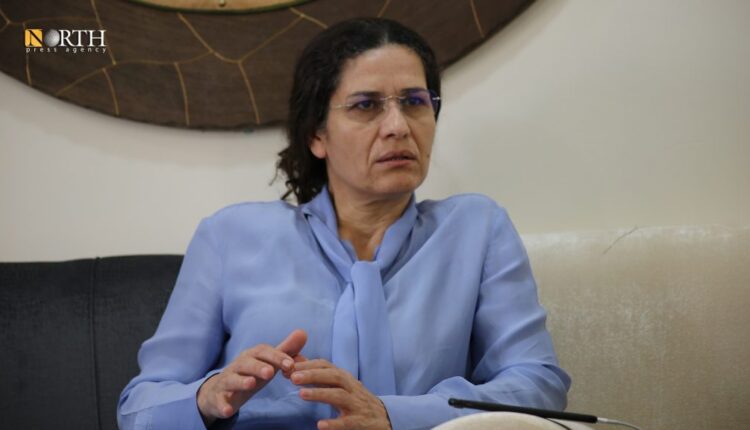Syria’s Kurdish Region Condemns Alawite Massacres as HTS Escalates Coastal Violence
By Kardo Roj
QAMISHLI, Syria (North Press) – Elham Ahmad, co-chair of the Department of Foreign Relations in the Autonomous Administration of North and East Syria (AANES), has condemned a surge of violence in Syria’s coastal region, where HTS-linked militants have been accused of massacring Alawite civilians under the pretext of targeting remnants of the ousted Assad regime.
Since Thursday, over 600 Alawites have been killed in Latakia and Tartus, marking the deadliest sectarian attacks since the Syrian civil war began in 2011, according to the Syrian Observatory for Human Rights (SOHR).
The violence erupted when HTS-aligned fighters launched operations in Alawite villages, claiming to pursue loyalists of former President Bashar al-Assad. However, reports from SOHR and eyewitnesses cited by Reuters indicate that the militants instead carried out mass killings, with videos circulating online showing executions and bodies in Alawite towns like Qardaha and Tuwaym.
Ahmad, in a statement on Saturday, warned against punishing an entire sect under the guise of regime retribution, stating, “The Syrian people, of all affiliations, have endured decades of injustice. Peaceful solutions and dialogue are the only path forward.” Her remarks highlight fears of a broader sectarian spiral, as Alawites—a Shia minority comprising about 10% of Syria’s population—face growing threats following Assad’s fall to HTS-led rebels in December 2024.
The coastal region, a historic Alawite stronghold, has become a flashpoint since the transition, with HTS consolidating power under interim leader Ahmed al-Sharaa. Sharaa, in a Friday address, defended the operations as necessary to secure Syria but urged restraint, acknowledging “individual violations” reported by the interior ministry. Yet, Alawite activists and residents, speaking anonymously to The Washington Post, described systematic attacks, including looting, abductions, and public humiliations, fueling accusations of revenge killings. SOHR documented 31 bodies, including nine children, buried in a mass grave in Tuwaym on Saturday, underscoring the scale of the violence.
For the AANES, governing a multi-ethnic region in northeast Syria, the bloodshed raises alarm. Backed by the U.S., the Syrian Democratic Forces (SDF) face their own security challenges from Turkish proxies, making the AANES wary of HTS’s expanding influence. Ahmad’s call for dialogue aligns with UN Special Envoy Geir Pedersen’s Friday plea for all parties to “refrain from actions that could exacerbate conflict,” as the international community watches for signs of a sectarian collapse in Syria’s fragile transition.
The violence has displaced thousands of Alawites, many seeking refuge at Russia’s Hmeimim airbase, a remnant of Moscow’s fading role. Analysts warn that unchecked reprisals could embolden rival factions, threatening hopes for a unified Syria after 14 years of civil war.
As curfews tighten in Latakia and Tartus, the death toll rises, and humanitarian groups report dire conditions for fleeing civilians. Ahmad’s voice offers a rare call for moderation, but with HTS-led forces showing little sign of relenting, Syria’s new rulers face a critical test to prevent a descent into sectarian chaos.

